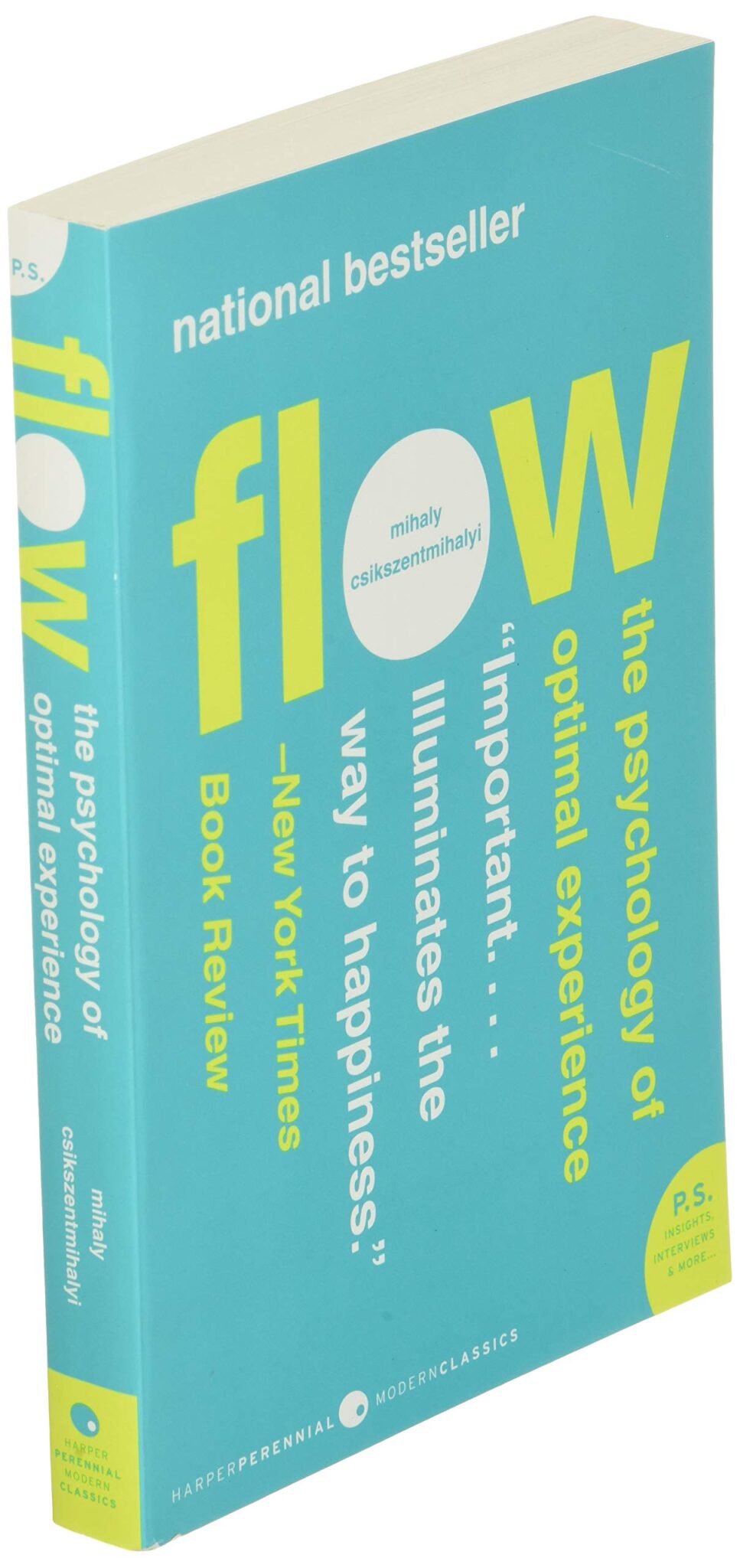What does a Hungarian-American psychologist and rapid-songwriting have to do with each other?
Quite a lot actually, but we'll get to that in a second.
Releasing new music regularly is a vital component to building a successful indie artist career.
But what if it takes you way too long to finish a song?
The good news is that you can dramatically speed up your songwriting process without sacrificing quality.
In fact, you can write a song in just one hour.
Flow State: The Key To Rapid High-Performance
The key to rapidly creating high-quality content (like a song) is to enter a max efficiency cognitive state known as "flow state".
Flow state is...
A mental state of relaxed high-performance.
Flow State
You've probably entered flow state before without realizing it while you've been working on your music, or something else. Some symptoms of flow state include:
Benefits Of Flow State
Dr. Csikszentmihalyi (phonetic pronunciation: “Me high? Cheeks send me high!”) gave a TED Talk in which he explained that our nervous system is incapable of processing more than 110 bits of information per second.
He says that we need about 60 bits per second to understand someone talking, which is why we can't exactly listen to two people talking at the same time.
He goes on to explain...
When you are completely involved in the process of creating something new, you don't have enough attention left over to monitor how your body feels, problems at home, or whether you're hungry or tired.
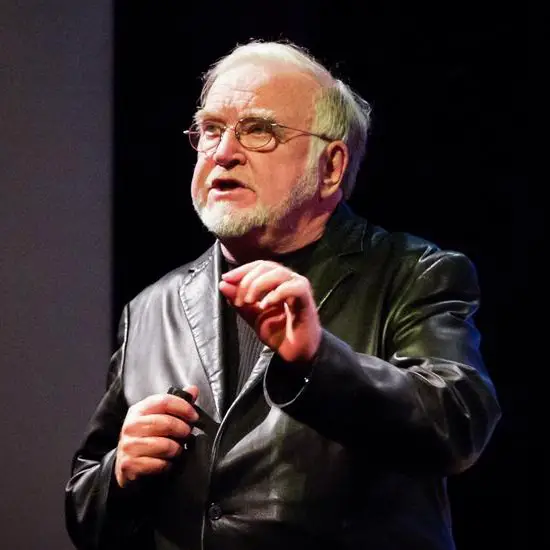
"Your identity disappears from your consciousness...existence is temporarily suspended."
Mihaly Csikszentmihalyi ‧ Hungarian-American psychologist
In fact, one composer once had this to say about creating in flow state:
You are in an ecstatic state to such a point that you feel as though you almost don’t exist. I have experienced this time and again. My hand seems devoid of myself, and I have nothing to do with what is happening. I just sit there watching it in a state of awe and wonderment. And [the music] just flows out of itself.
Anonymous American Composer
In other words, flow state is when you and your brain operate at maximum efficiency, and you can create rapidly without sacrificing quality.
I've experienced flow state myself numerous times, either when I'm writing novels, or I'm writing a song.
In fact, my wife will sometimes tell me something while I'm working on a song and I'll absolutely have no memory of her ever saying anything. Haha! (Sorry, Haley!)
So What Does This Mean For You?
You want to enter flow state because it's when you'll produce your best work.
Not only that, but working faster can actually help you to produce BETTER quality songs because you allow the creative half of your brain free reign over the songwriting process.
But how do you enter flow state?
Csikszentmihalyi describes eight characteristics of flow:
- 1Complete concentration on the task;
- 2Clarity of goals and reward in mind and immediate feedback;
- 3Transformation of time (speeding up/slowing down);
- 4The experience is intrinsically rewarding;
- 5Effortlessness and ease;
- 6There is a balance between challenge and skills;
- 7Actions and awareness are merged, losing self-conscious rumination;
- 8There is a feeling of control over the task.
That is a long list, but I think we can boil that all down into just TWO conditions that need to be met to achieve flow state.
The creation process needs to be:
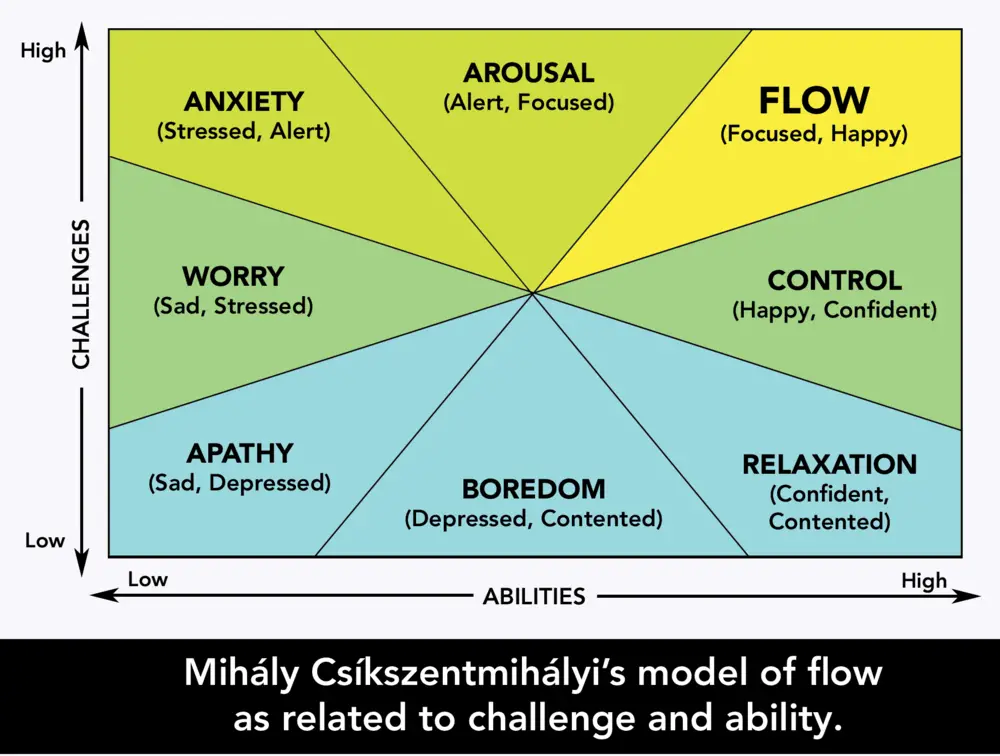
Challenging enough to keep your mind busy
The first condition you need for flow state to be achieved is a challenge. If what you're doing isn't challenging enough, you can become distracted, and fall out of the flow stream.
This is where setting the goal to write your song quickly can actually help you stay in flow state, and thus, create higher quality songs.
Easy enough to avoid frustration
However, your task also can't be too difficult to the point where you get tripped up and frustrated. This will also knock you out of flow state.
This means you also have to be skilled enough at songwriting and utilizing your DAW and/or instrument of choice that you easily and freely create without getting tripped up.
If you're trying to write a song in an hour, then you already have the challenge part down (as if writing a song wasn't challenging enough already!).
The next part you need is the ease of creating so that you can avoid frustration.
That's what the rest of this article will focus on. How you can make songwriting EASY for yourself, so that you can become a songwriting MACHINE!

"The best moments in our lives are not the passive, receptive, relaxing times . . . The best moments usually occur if a person’s body or mind is stretched to its limits in a voluntary effort to accomplish something difficult and worthwhile"
Mihaly Csikszentmihalyi ‧ Hungarian-American psychologist
You Need A System
I know we creatives don't like to hear the word "system", or really anything having to do with structure whatsoever, but...
It's crucial if you want to finish songs rapidly.
Think of your songwriting system as the Millenium Falcon. Sure, you could get to space using a Saturn 5 rocket or something, but would you be able to make the Kessel Run in less than 12 parsecs?
Definitely not.
Get Started Fast (How To Always Be Inspired)
Probably one of the biggest obstacles to overcome when writing a song in an hour is just getting started. Getting past that blank yawning maw of an empty DAW project.
But what if I told you that you could literally ALWAYS be inspired, and never struggle with the paralyzing "Blank DAW Syndrome" ever again?
Here's how to do it:
Use A Template
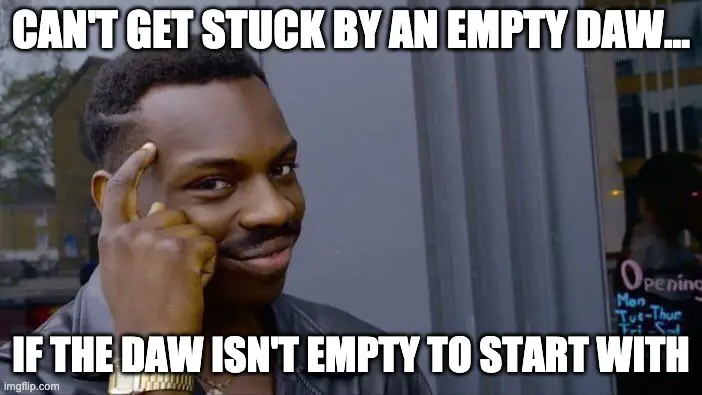
The fastest way to get going is to start with a songwriting template.
Don't just start with an empty DAW, as that wastes time. It might not seem like a lot of time, but it adds up when you have to set up all of your favorite instruments or tracks every time you go to write a new song.
So create a template in your DAW that gives you all the tracks you might need for writing your song.
Have A 3-5 Song Inspiration Bin
What are your top 3-5 favorite songs right now that make you go, "I wish I had written that song!"
Put them in a Spotify playlist, or folder on your computer, and listen to these songs prior to going to write your own song.
This will ensure that you're always inspired to write.
“I only write when inspiration strikes. Fortunately it strikes at nine every morning.” - William Faulkner
Hack Music Theory
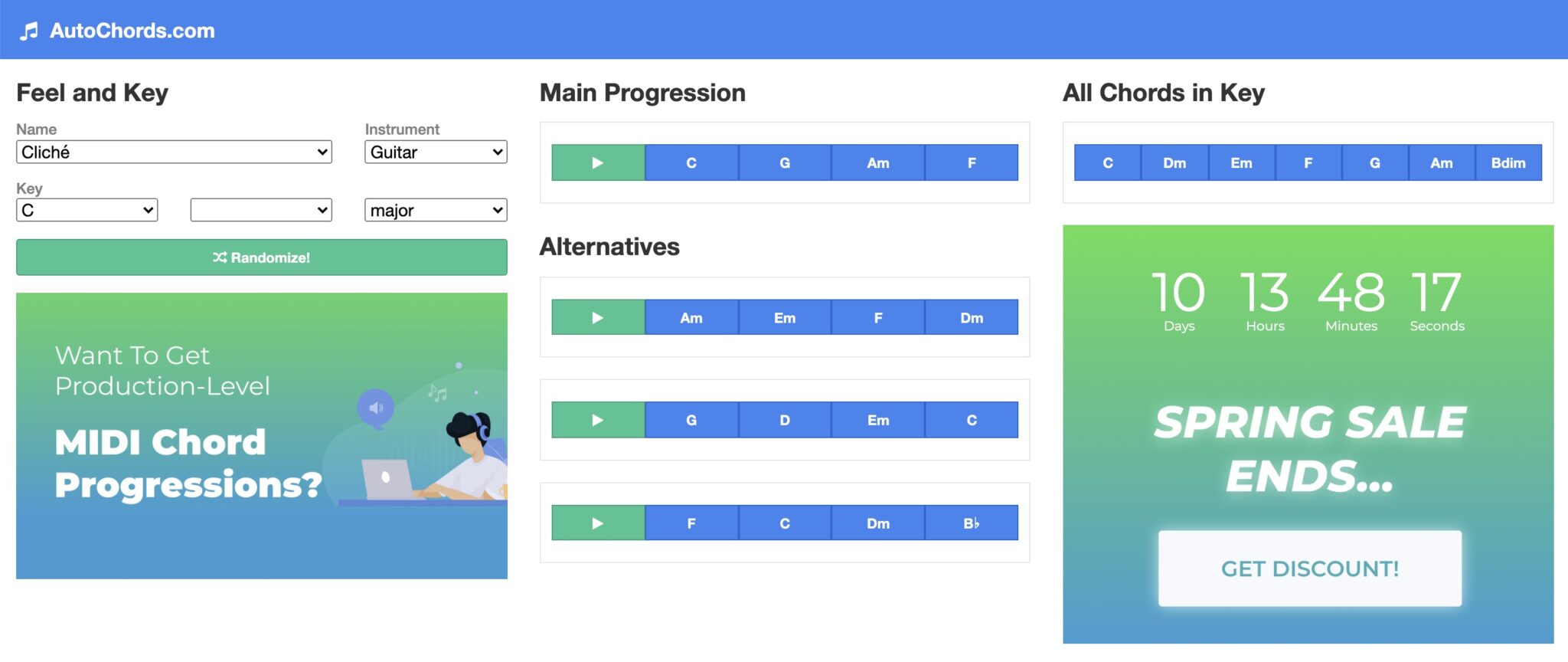
If you don't know music theory like the back of your hand (like I don't), then it's going to be helpful to do some music theory "hacks".
You don't want to get slowed down by not knowing what chords or notes to play.
So here are somethings you can do to hack music theory:
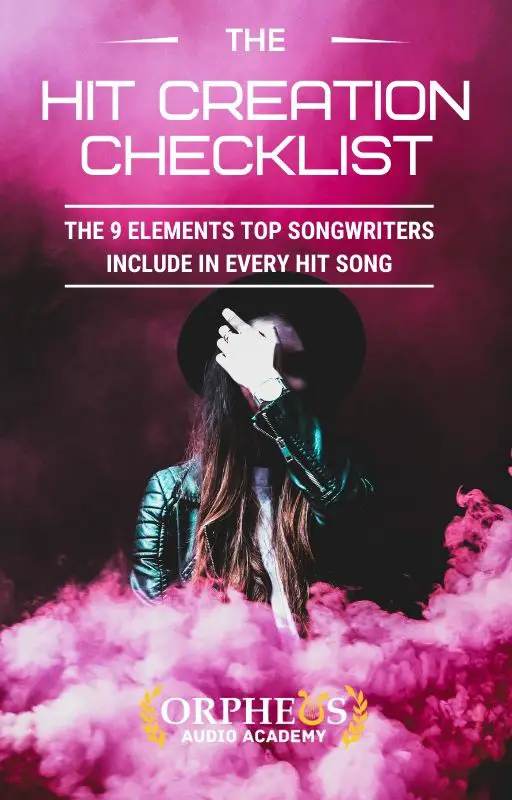
Write A Hit Song!
Click below to download my free Hit Creation checklist which demystifies the songwriting process and boils down the techniques hit songwriters use into a simple 9-step formula.
Now, you may be thinking, "Wait, MIDI packs, copying chords, isn't that cheating?"
Not at all!
There are so many notes use can use in a given song, and there are only so many possible chord progressions.
Chords cannot be copyrighted, and tons of great songs use the same chords while at the same time sounding completely different from each other.
The uniqueness comes from the instrumentation, the production, and the lyrics/vocals.
Saying you don't want to use the same chords or MIDI from another song would be like a painter saying, "Blue? I can't use blue. Vincent van Gogh used blue in his painting, 'Starry Night'."
Plus, this is just a starting point. Use MIDI packs and the chord progressions from songs you like as a starting point. You can always tweak and move the notes around later.
Keep A Running List Of Ideas
Song ideas are all around us at all times. We just have to notice them.
When you do notice, be sure to write down your idea. Don't trust yourself to remember, no matter how good the idea is, YOU. WILL. FORGET.
Have a document or a spreadsheet that you can use to write down ideas for:
Create A Favorites Folder
Another big time-eater is scrolling through endless presets.
Instead, create a "favorites" folder that contains your favorite samples, sounds, or VST presets.
Again, you can always change your sounds later, but by having a list of sounds you already know sound good, you can quickly write your song without getting tripped up by sounds.
Journal Regularly
The last thing you can do to make sure you are always inspired is journal regularly.
Write down your thoughts, feelings, ideas, or just anything that comes to the surface.
This is a great way to discover what is important to you, and create song concepts.
Minimize Distractions
Now that you're inspired, you need to be able to minimize distractions so you don't get knocked out of your flow state.
Turn off Wifi & Phone
Don't get distracted by social media or phone notifications. Turn off wifi and your phone while writing.
Free of these distractions, you'll be able to create much faster.
Don't Tweak
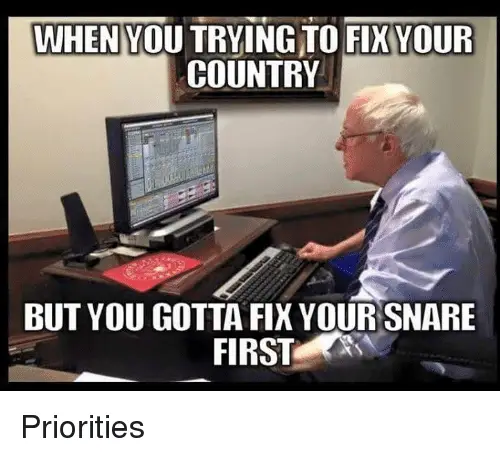
Writing is NOT the time for editing, mixing, or tweaking, no matter how gnarly that snare sounds.
Tweaking is for the mixing process, not the writing.
The reason you don't want to tweak during the writing process is because it requires the use of a completely different part of your brain, the more logical/problem-solving side.
But creating uses the creative part of your brain, so switching back and forth will slow you down, drain your energy faster, and knock you out of flow state.
Plus, tweaking small details just takes a lot of time and doesn't get you to where you want to go as quickly as just finishing the writing process.
Have A Timer
Another great way to keep you focused and distractions at a minimum is writing with a timer. Only give yourself so much time to write.
When you're on the clock, distractions become much less tempting.
To make this even better, bribe yourself with a reward if you hit your writing goal before the timer goes off, and/or give yourself a negative consequence if you don't hit your goal.
Pick A Key & Tempo
Okay, that's a lot of prep, but now it's time to actually start writing, so, first things first...
Pick a key and a tempo...but which do you choose?
Know your genre
This question is easily answered if you know your genre. What are common keys and or tempos that are used in your genre?
For example, in my genre (synthwave) I looked at the tempos and keys of 50 different songs to figure out what the averages are.
If you want to know what I discovered, you can check out my posts below.
Obviously, you can use just about any key and tempo in any genre, so when in doubt, just pick something and move on.
Steal/Borrow Arrangements
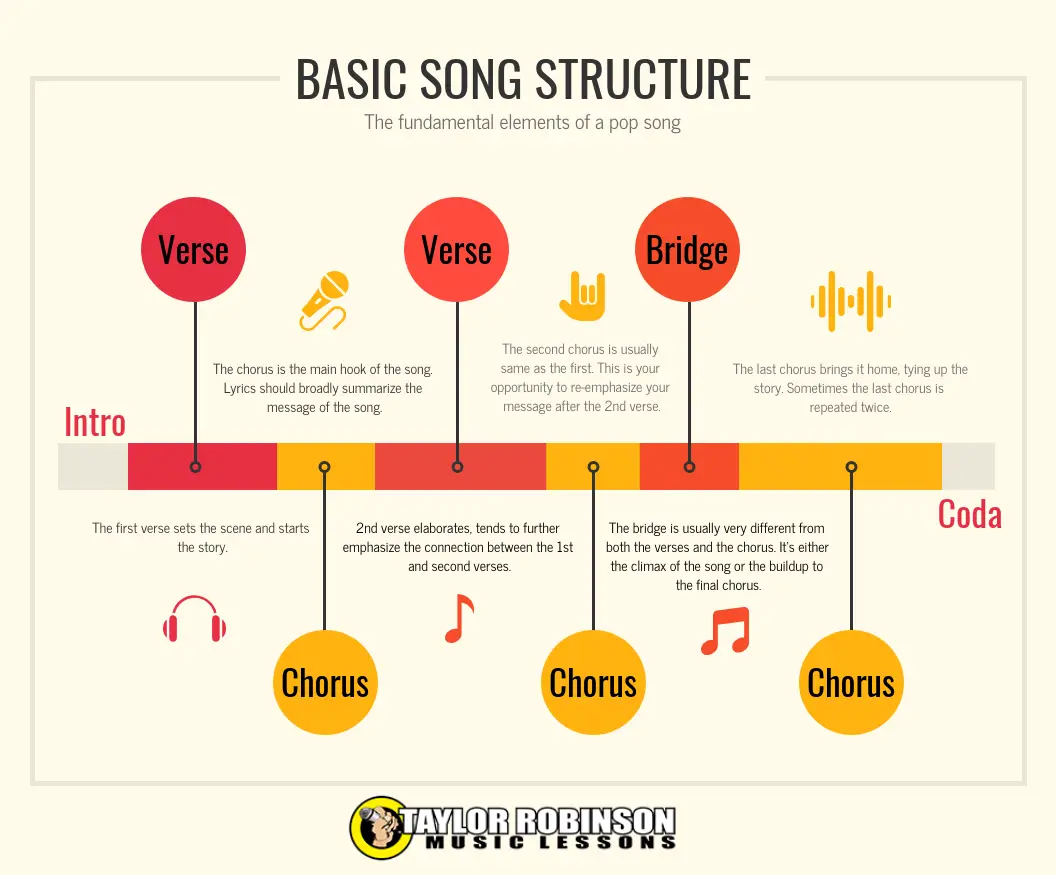
The next step is to figure out your arrangement.
Or, better yet, DON'T figure it out. Steal/borrow.
The less decisions you have to make while writing a song, the faster you'll write it.
So think of a song you like, and just copy the song structure from that song.
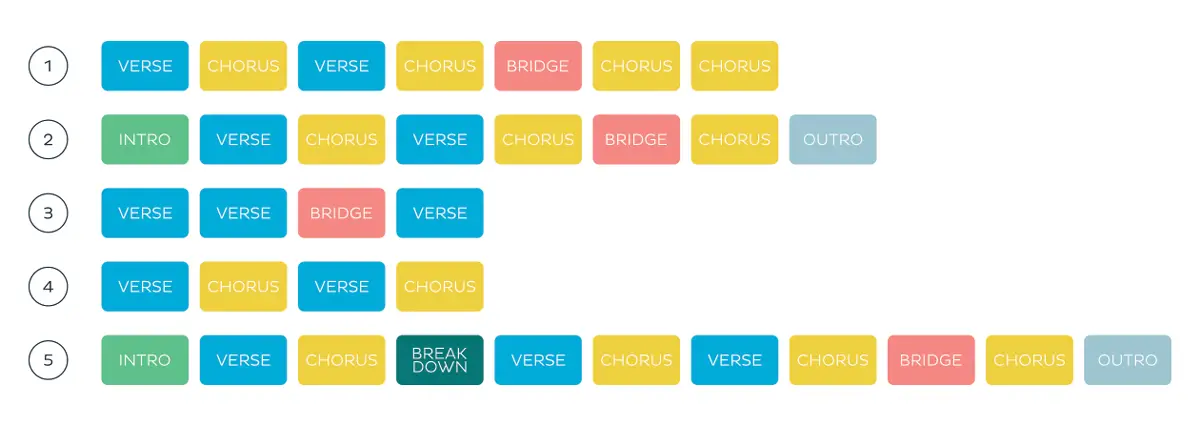
Drop In a reference track
Using reference tracks while mixing and mastering is essential, but why not use one during the writing process?
Drop a professionally produced track into your project, and use it as a guide for your instrumentation.
Obviously, you don't want to copy it, but you can use it as a guide to help you make decisions about:
Write From Bottom To Top
There are a lot of ways to write a song, but a good place to start is writing from the bottom to the top.
This means starting with your bass and drums, and then working your way up to the chords, instrumentation, and finally leads and vocals.
When I write, I typically start with chords, and then move on to bass and drums, so do what ever works for you.
But the reason this works is because writing great melodies is difficult, so rather than getting stuck trying to write the hardest part of the song first, write the easier parts first, and then you may find yourself inspired by the music to the point where the melody becomes obvious to you.
Master Your DAW Shortcuts
Another strategy to help you produce faster is to master your DAW keyboard shortcuts.
Take some time to learn all about how to use your shortcuts, piano roll, arrangement window, and so on, so that you can quickly and easily write your song as if your DAW isn't even there.
While you're writing isn't the time to be trying to figure out how to use this or that feature in your DAW.
Don't Try To Be Perfect
Finally, don't try to be perfect. You're writing a song in an hour. Realize that it's probably going to be rough, especially the first few times.
But you will be MUCH further along than if you hadn't shot to write your song quickly.
Also, the more you go through this process, the faster you'll get, and the higher the quality will become.
Embrace the process, and aim for PROGRESS over perfection.
Free Songwriting Guide
Hey, if you're wanting even more help with writing songs quickly, then grab my free hit-song formula checklist below.
This will walk you through the 9 elements that all hit songs tend to have in common with each other.

Write A Hit Song!
Click below to download my free Hit Creation checklist which demystifies the songwriting process and boils down the techniques hit songwriters use into a simple 9-step formula.
I hope you found this song on how to write your next song in an hour or less helpful!
If so, feel free to share, and let me know in the comments below...

